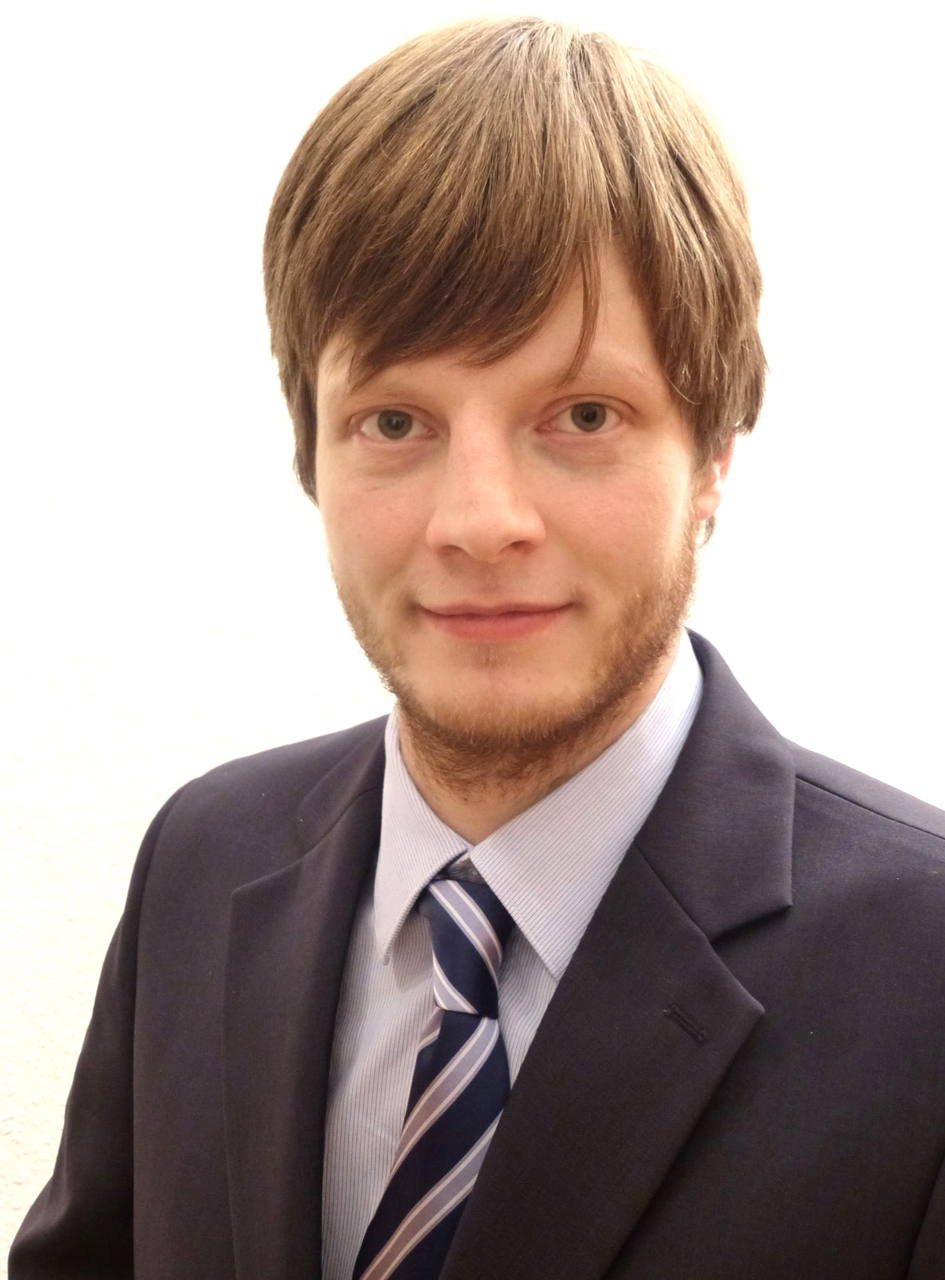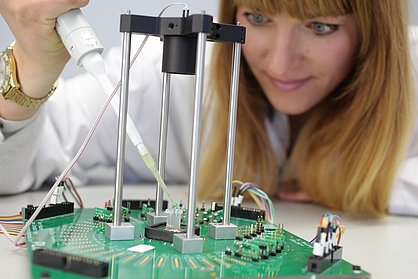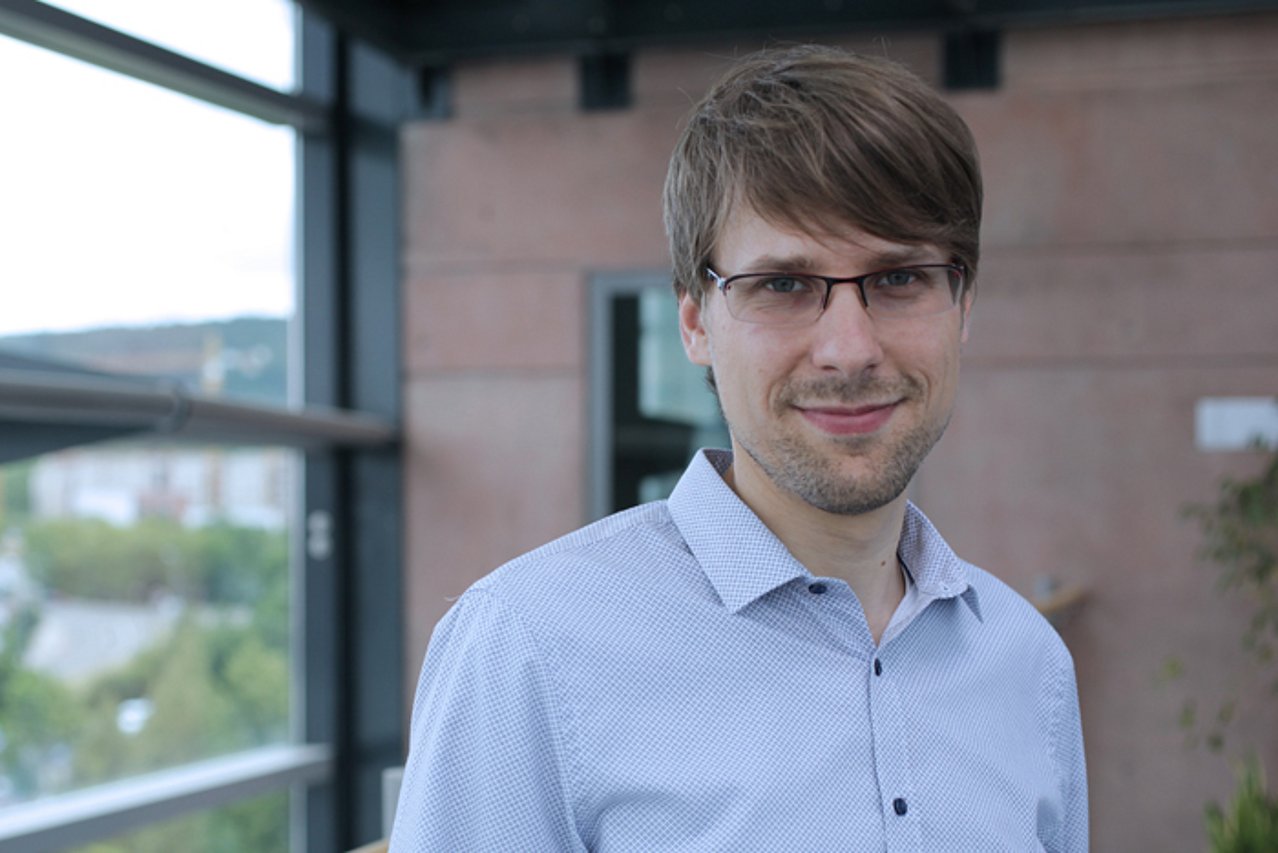Dr. Friedrich Scholz, Senova


“IMMS demonstrated great commitment in responding to the huge challenges on the development of the point-of-care test. Our experience demonstrates that IMMS application-oriented analyses, understands and models the biochemical processes. Furthermore, the colleagues implement the specifications with their integrated system design and are flexible in adapting the systems as necessary.”
„Cancer is one of the most frequent causes of death in both Germany and the EU. Early diagnosis is essential for a successful cancer treatment. The aim of the joint research project called INSPECT is the development of a point-of-care diagnostic platform that will recognise prostate cancer at an early stage. In the individualised cancer diagnostics immunological methods are used to detect analytes and to produce a concentration dependent signal by means of a transducer which correlates with the severity of the disease. Tiny sensors are required which pick up the smallest signal changes. These sensors must also be inexpensive and permit easy handling of the diagnostic device.
All the above specifications are met by the microchips that have been developed by IMMS. They use an array of photodiodes for detection and multi-stage signal amplification for the perception of very small signal fluctuations. The chips developed by IMMS have been made capable of analysing the complex samples such as blood using special packaging technology combining them with tailor-made circuit boards and reaction vessels. Thus a point-of-care diagnostic system could be prototyped, allowing bio-medical analyses to be carried out at the premises of the Senova GmbH. Specific antibodies were deposited onto the surface of the microchips, transducers were developed suitable for the chip and they were integrated into the system.
HRP-based biochemical staining was produced in the sample fluid and on the sensor surface for the quantitative colorimetric measurements. The high resolution of the signals and the accurate signal detecion made it clear that simple, quick, reliable diagnosis and monitoring of certain cancers is possible. The system is currently being tested for prostate and colon cancer diagnostics. In the future the various sensors on the chip should allow the analysis of a range of parameters so that cancer diagnosis will become ever more reliable and certain and so that the monitoring of individual therapies will become possible.
IMMS demonstrated great commitment in responding to the huge challenges on the development of the point-of-care test and on the associated sensor specifications. The excellent cooperation between IMMS and ourselves is the foundation for the operational work in this interdisciplinary project.
Our experience demonstrates that IMMS application-oriented analyses, understands and models the biochemical processes. Furthermore, the colleagues implement the specifications with their integrated system design and are flexible in adapting the systems as necessary. The combination of the the competencies of the IMMS in electronics and signal acquisition with the experiences of Senova in developing diagnostic products provides a promising foundation for a further successful cooperation.“
The reference is related to:
Contact
Contact
Eric Schäfer, M. Sc.
Head of Microelectronics / Branch Office Erfurt
eric.schaefer(at)imms.de+49 (0) 361 663 25 35
Eric Schäfer and his team research Integrated sensor systems, especially CMOS-based biosensors, ULP sensor systems and AI-based design and test automation. The results are being incorporated into research on the lead applications Sensor systems for in-vitro diagnostics and RFID sensor technology. It will assist you with services for the development of Integrated circuits and with IC design methods.
Contact
Dipl.-Ing. Michael Meister
Head of Industrial Electronics and Measurement Technology
michael.meister(at)imms.de+49 (0) 3677 874 93 20
Michael Meister is your contact for testing services, the development of test methodologies, and long-term measurements. He answers your questions on Modular and mobile test systems that we develop in our research in Smart distributed measurement and test systems as well as about testing and characterisation of integrated sensor systems. He is responsible for the test equipment at IMMS and will support you in the validation of ASIC and MEMS developments.






